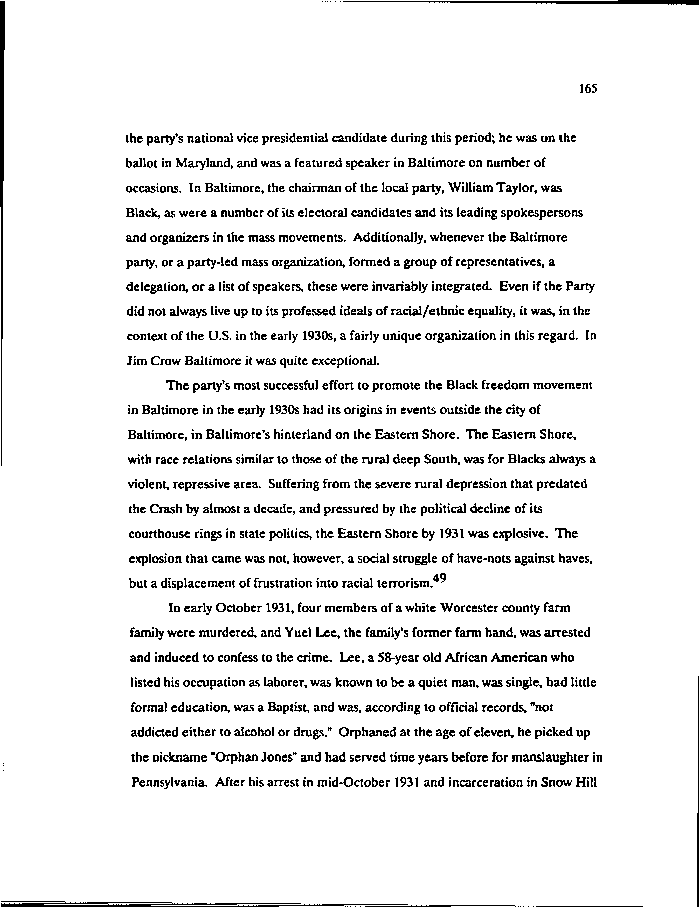|
165
the party's national vice presidential candidate during this period; he was on the
ballot in Maryland, and was a featured speaker in Baltimore on number of
occasions. In Baltimore, the chairman of the local party, William Taylor, was
Black, as were a number of its electoral candidates and its leading spokespersons
and organizers in the mass movements. Additionally, whenever the Baltimore
party, or a party-led mass organization, formed a group of representatives, a
delegation, or a list of speakers, these were invariably integrated. Even if the Party
did not always live up to its professed ideals of racial/ethnic equality, it was, in the
context of the U.S. in the early 1930s, a fairly unique organization in this regard. In
Jim Crow Baltimore it was quite exceptional.
The party's most successful effort to promote the Black freedom movement
in Baltimore in the early 1930s had its origins in events outside the city of
Baltimore, in Baltimore's hinterland on the Eastern Shore. The Eastern Shore,
with race relations similar to those of the rural deep South, was for Blacks always a
violent, repressive area. Suffering from the severe rural depression that predated
the Crash by almost a decade, and prcssured by the political decline of its
courthouse rings in state politics, the Eastern Shore by 1931 was explosive. The
explosion that came was not, however, a social struggle of have-nots against haves,
but a displacement of frustration into racial terrorism.
In early October 1931, four members of a white Worcester county farm
family were murdered, and Yuel Lee, the family's former farm hand, was arrested
and induced to confess to the crime. Lee, a 58-year old African American who
listed his occupation as laborer, was known to be a quiet man, was single, had little
formal education, was a Baptist, and was, according to official records, "not
addicted either to alcohol or drugs." Orphaned at the age of eleven, he picked up
the nickname "Orphan Jones" and had served time years before for manslaughter in
Pennsylvania. After his arrest in mid-October 1931 and incarceration in Snow Hill
|

